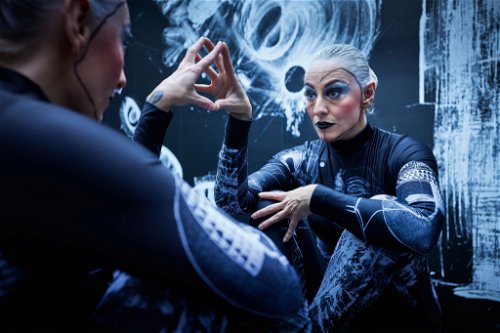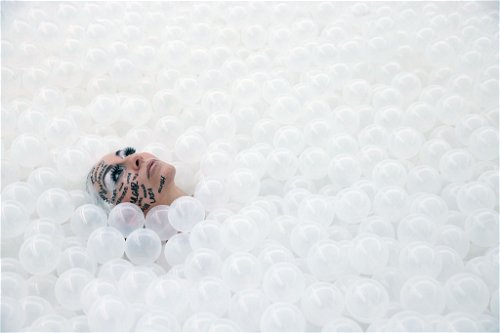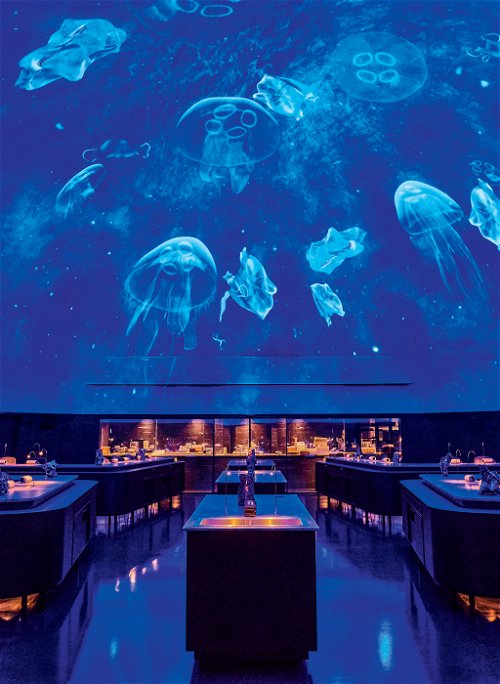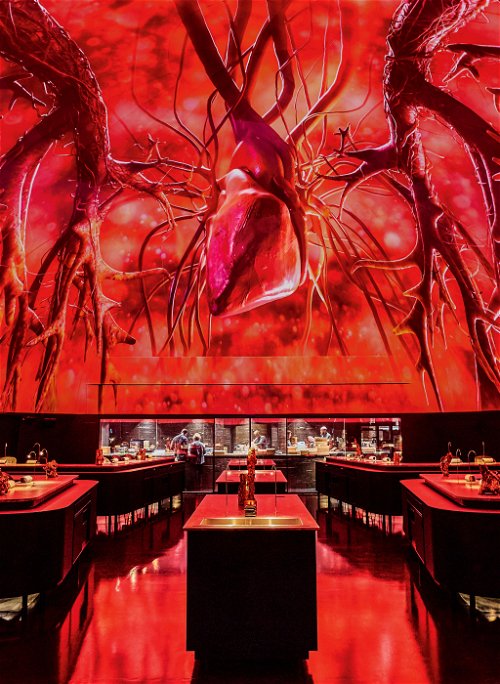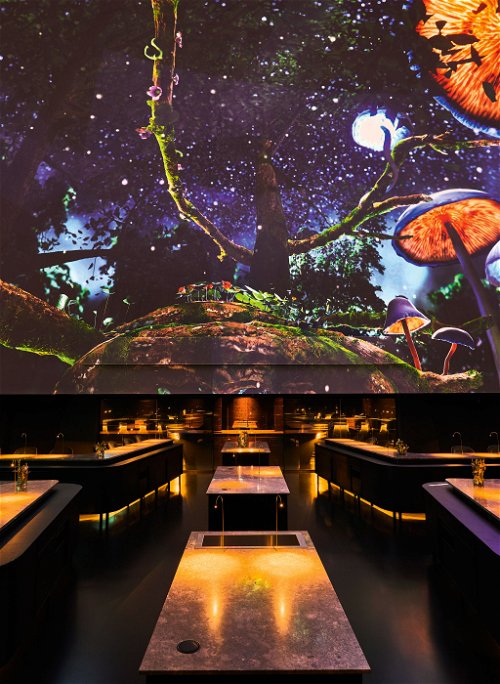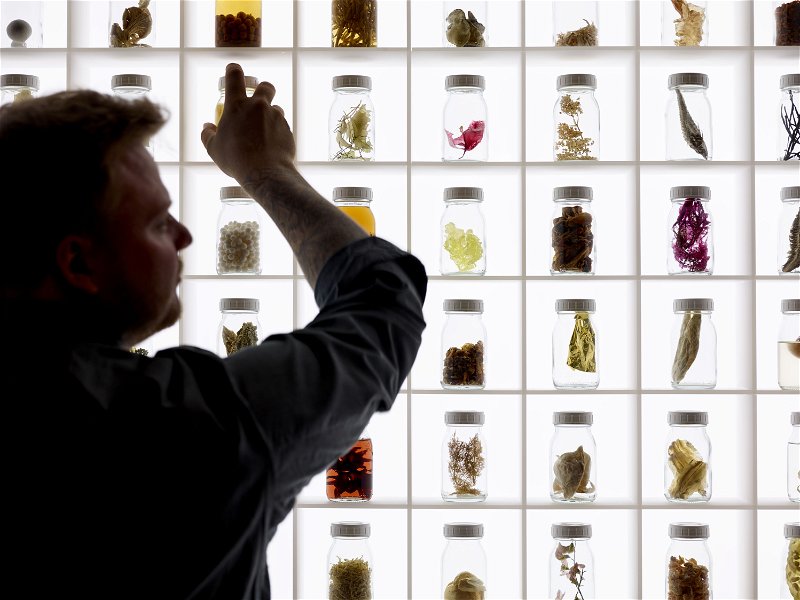Rasmus Munk: The master of the grand entrance
The Dane Rasmus Munk has arrived at the top of the world with his groundbreaking restaurant "Alchemist": two stars, fifth place in the "50 Best" and a five-digit waiting list for guests. Now he has also founded a culinary research center - and he is just 33 years old.
Lamb brains in cherry sauce, a banana like something out of an Andy Warhol pop art painting, Norway lobster in the shape of a praline and dehydrated fish stock that looks like plastic wrap: Nothing on the plates in the "Alchemist" restaurant is as it seems. Behind this unique concept is Rasmus Munk, one of Denmark's most successful chefs in his early thirties - a master of illusion and innovation.
Rasmus Munk was born in Randers in 1991. This port city of 64,000 inhabitants in East Jutland is best known today for "Memphis Mansion", the only permanent Elvis museum outside the USA. For his parents - a nurse and a truck driver - neither food nor culture played an important role:
What was in the fridge wasn't important, and we regularly went to McDonald's on Fridays. We didn't go to the theater or an art museum.
The only cultural experience the chef remembers is a visit to Copenhagen's Experimentarium science museum, whose dome served as a model for the one in his restaurant.
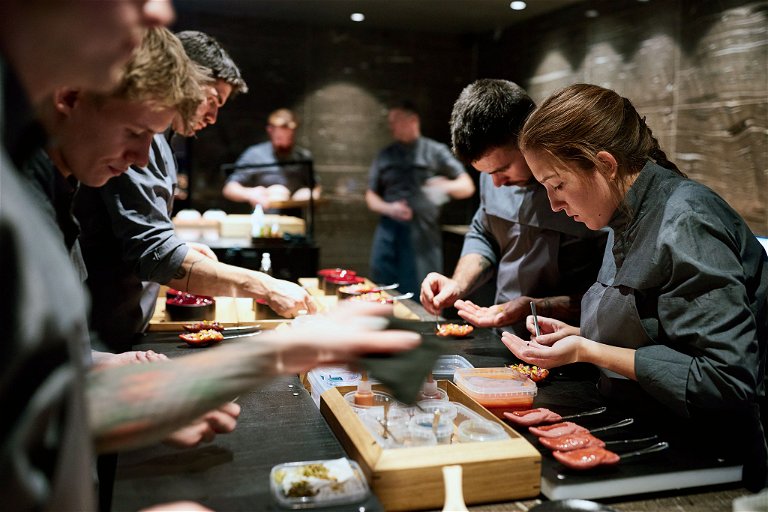
Cross-border commuter
Rasmus Munk actually wanted to become a mechanic or a policeman, but then joined a friend who was training to become a chef. During his apprenticeship years in his home region, he took part in numerous cooking competitions. In 2012, he moved to London to cook at the one-star "North Road", but didn't stay long due to the tough manners behind the scenes. Instead, his interlude in top British kitchens helped him to get a job as head chef at Treetop, the hotel restaurant at the Danish forest resort Munkebjerg. There he cooked for food critics and gourmets and soon saw through the formula for success of the new Nordic cuisine: "You get some beautiful handmade crockery and go into the forest to pick some herbs."
After two years, Munk was ready to go beyond the boundaries of what he knew and set up his own restaurant: "I wanted to create a restaurant that makes a difference and uses food to communicate." And that's what he's been doing since 2015: at the age of just 24, he opened the "Alchemist".
After two years in the center of the Danish capital, Rasmus Munk moved his restaurant to the up-and-coming Refshaleøen district and opened at its current address in 2019: in a former shipyardwall to wall with the contemporary art center "Copenhagen Contemporary", which opened in 2018. There, he is fulfilling his dream of a "holistic cuisine", which he is Manifesto describes.
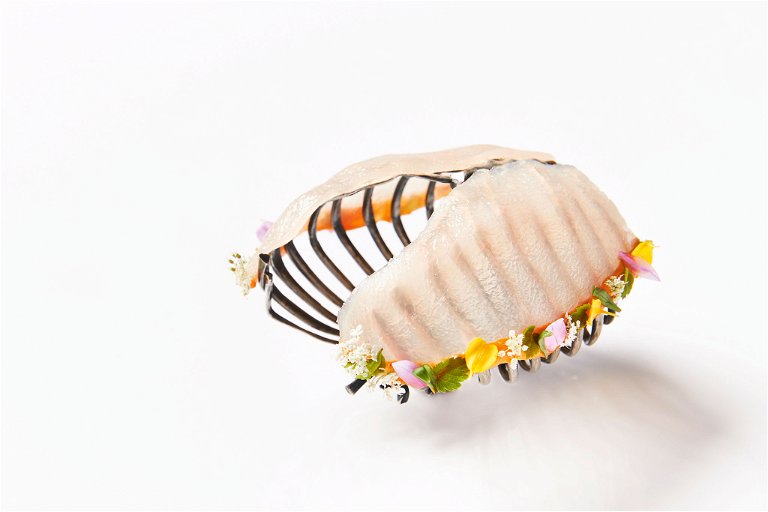
The "holistic cuisine" should appeal to all five senses, arouse the guest's emotions, question the idea of food in an innovative way, participate in the debate on social and ethical problems, be sustainable and incorporate elements from theater, art, science and technology. In the new 2,000 square meter restaurant, the restaurant has enough space to meet its high standards. A truly theatrical experience awaits the guests with around 50 courses - sorry: "impressions". These edible works of art are presented in an alternately poetic, whimsical and minimalist style. There is a delicate hibiscus flower made from the Kombucha mushroom Scoby ("Scoby Bloom") - and in the "Tongue Kiss" the topping is licked by a replica of a human tongue made of silicone. A drink with bioluminescence extracted from jellyfish glows in the dark.
Just seven months after the reopening, the Michelin Guide caused a surprise when it included the "Alchemist" directly in its Northern Europe edition with two stars. "An evening at 'Alchemist' has nothing to do with a dinner in a traditional restaurant," says Rasmus Munk. "Because the experience is so different from other top restaurants, I was aware from the outset of the risk that gourmet guides such as the Michelin Guide might exclude us completely. I am all the more grateful that they have recognized that a culinary experience can be approached in a new and unconventional way."
Several acts
A session at the "Alchemist" lasts four to six hours and is divided into several acts. The "New York" area kicks things off with a colorful installation by street artist Lady Aiko, which highlights the influence of immigrants on the culinary scene of their new home. Then it's off to the lounge, where guests can not only look into the kitchen, but also into the multi-storey wine cellar, which holds 10,000 bottles. The main act takes place in "The Dome": The eponymous dome with a diameter of 18 meters arches above the dining room with its snake-like tables, where videos flicker across huge screens during the course of the menu. Sometimes you imagine yourself under a starry sky with northern lights, sometimes under water, surrounded by jellyfish and plastic bags. "If the guests like everything about the experience, then we haven't done our job properly," says Rasmus Munk. "We want to offer them food for thought without imposing an opinion. Everyone can draw their own conclusions."
However, Munk's innovative approach to the art of cooking not only benefits the guests of the "Alchemist", but also the homeless in Copenhagen. During the coronavirus pandemic, when the restaurant had to close for months, he set up the NGO "JunkFood", which is committed to providing 300 people from the street with a hot meal every day. Some of the dishes are made from surplus ingredients, around a ton of which is donated every week. In the afternoon, volunteers deliver the food to hostels and emergency shelters so that those in need have something warm to eat in the evening. Since its foundation, "JunkFood" has already provided over 425,000 portions.
New research center
Rasmus Munk tests the limits of what is possible with food. With a focus on gastronomic development and innovation, he already works with several leading universities and forward-thinking companies. New foods and technologies are developed with a combination of gastronomic and scientific expertise and, above all, a large dose of creativity.
In order to be able to conduct research on his own, Munk launched a new mammoth project at the end of 2023: a global culinary research center called "Spora" in Copenhagen, just a stone's throw away from the "Alchemist". With this, he wants to do pioneering work with sustainable food. These should not only be affordable, tasty and locally grown, but also have a positive impact on the lives of millions of people. Projects are already underway in the search for a sustainable alternative to chocolate and for possible uses for the mold Neurospora intermedia.
"When I think of the future of food, I see shared knowledge and collaboration between chefs, universities and companies around the world," says Rasmus Munk.
We have the same task: to use creativity to find new solutions to get out of the current crisis and change things for the better.
"Alchemist"
In just a few years, the "Alchemist" has become one of the most sought-after restaurants in the world. However, just like the dishes and the surroundings, the price for the spectacle borders on the surreal: at the equivalent of around 660 euros for the menu, drinks are not included. Despite this, the "Alchemist Experience", which is normally offered Tuesdays to Saturdays, is always fully booked. We are not talking about reservations, but about tickets that are sold about three months in advance and are always sold out within minutes. Thousands of people put their names on the waiting list to perhaps be allowed to step through the two-ton iron door and be among the 40 lucky ones who are allowed to enter each evening. the culinary play by Rasmus Munk. The dining room is designed so that reservations can only be made for two, four or six people.
Refshalevej 173C, 1432 Copenhagen
T: +45 31 716161, alchemist.dk
Spora Research Center:
Don't miss out!
Sign up now for our newsletter.

